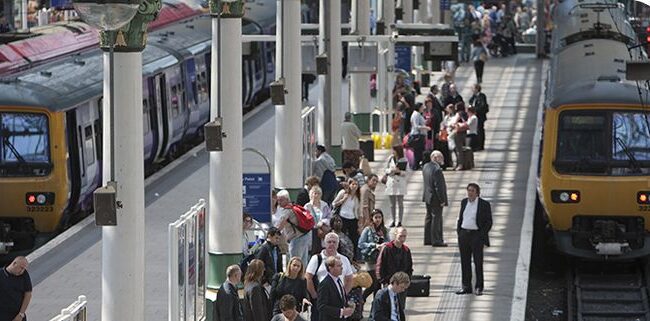BUDGET: Firms line up for High Speed North work
Companies active on major civil engineering projects will be preparing to start competing for the £300m of transport project design work confirmed on Wednesday as the Chancellor officially greenlit recommendations from Lord Adonis’ High Speed North report.
WSP Parsons Brinckerhoff, which employs 500 people in Manchester, was commissioned in autumn 2015, along with Halcrow, TRL and Steer Davies Gleave to carry out a £500,000 study for Transport for the North and Department for Transport to examine the case for turning the A66 and A69 into dual carriageways as well as making other improvements along their length.
Arup, based in Piccadilly Place, won a £1m piece of work to consider how the transport network to the north-west of Manchester could be improved, including the M60 from junctions 8 to 18 and the M62 from junctions 9 to 12.
Arup was also commissioned to explore options for increasing capacity through Manchester Piccadilly station, where it worked on the refurbishment several years ago, as the central rail hub for Northern Powerhouse, which were set out in detail in the High Speed North report. Arup’s extensive experience include designing Metrolink’s expansion and infrastructure works at Manchester Airport.
The £1.3m trans-Pennine tunnel viability study was awarded by Highways England to a joint venture between Mouchel and Hyder in July 2015.
Another large consultancy with a local base is Crossrail project manager Turner & Townsend, which counts Manchester City Council, Manchester Airport, Network Rail and Highways England among its North West client base.
Consultants in the sector will be watching closely as the next wave of studies is commissioned following the commitment of extra funding for detailed design work.
Tony Kearns, operations director for rail at WSP Parsons Brinckerhoff, said: “The Chancellor’s backing of HS3 is fantastic news for the region. This commitment to the project, alongside other major railway investments nationwide, gives the engineering sector the confidence to recruit in preparation and develop the skills the industry needs to deliver these ambitious schemes.
“We’ve hired more than 50 staff to our rail team since September last year, and backing for HS3 will play an important role in recruiting as well as retaining this talent.”
Guy Lawson, director of Civil Engineering Contractors Association North West, said: “The winners will be commuters across the North, freight operators, and there are very significant opportunities for contractors too. To date, the HS2 team has worked closely with CECA and civil engineering contractors. Its commitment both to early contractor involvement and to developing opportunities for regional SMEs is encouraging and bodes well for HS3. With more and more infrastructure projects coming to fruition across the North West, in road, rail and utilities, it is particularly important that the greatest use possible is made of the region’s supply side capacity, and that SMEs are seen as integral to the delivery of these schemes.”
However, public procurement methods often favour large companies as rules are set for bidders with turnovers over a certain amount, £100m for instance on recent Manchester Airport runway invitations to tender for instance.
Lawson added: “There are potential difficulties for regional SMEs to win work, unless this is carefully managed from the client side.”





Not only are none of these firms small or “local”, but many are not UK-owned. WSP|Parsons Brinckerhoff is Canadian, Halcrow (actually now CH2M) is American., Hyder (actually now ARCADIS) is Dutch.
Arup is employee-owned and headquartered in Britain, and Mouchel was bought recently by the UK-based Kier.
Is there not a way to give preference to British (or at least EU) owned consultanties on these mega projects?
By Simon